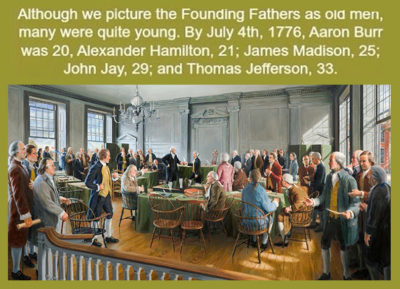For the American founders majority rule was the problem. To prevent majority rule from becoming unjust they designed measures into our constitution. Do you agree rule by majority can be an issue? When might it be desirable to thwart majority rule?
The solution
Our founders adopted a written constitution. The constitution overrides the will of the majority. They did this to create a framework for limited government. The authority of the government covers specifically enumerated areas but no others. Outside that purview the federal government has no authority.
Federalism divides power between the federal government and the several states. All the authority not specifically enumerated in the constitution resides with the states and the people. Taxation imposed by the state of New Hampshire amounts to roughly $2.3 billion annually. The balance of state spending, about $4.2 billion annually comes from federal sources. How is it we still think federalism is in place and working?
The Bill of Rights was an add on to the U.S. Constitution done at the insistence of Anti-Federalists. The rights enumerated there generally begin “Congress shall make no law…” As Joseph Story observes the Bill of Rights, “… is an important protection against unjust and oppressive conduct on the part of the people themselves.”
Under Article V we can amend the U.S. Constitution. The process requires a super majority to accomplish the task. Both Congress and the people retain the right to initiate changes to the constitution. Interestingly, the constitution excludes both the executive branch and the judiciary from the amendment process.
Balance and counter-balance
The constitution grants authority to compare federal laws to the constitution to the Supreme Court. It may strike down those laws which contradict constitutional provisions. This is the responsibility to enforce the constitution. It is there to defend the rights of the individual citizens against the will of the majority.
Our government is a representative form. The people do not rule directly. We rule by electing representatives to govern in our stead. This is radically different from democracy of ancient Athens. It is the distinguishing point between democracy and republic. Madison said a large and extended society can function only as a republic.
America has separation of powers. Power divides between an elective legislature which makes the laws, an elective executive which enforces them and a judiciary to arbitrate and resolve legal disputes put in place by appointment.
Our constitution has checks and balances. In addition to dividing power our branches of government have mutual oversight. Congress can make a law. The executive can veto it. Vetoes can be overridden but only with super-majority. The executive enforces the laws but there is congressional and judicial oversight. The judiciary interprets the Constitution and laws but judges are nominated by the executive and confirmed by the Senate.
The electoral college exists because the executive is elected by the people. The distribution of power is weighted to give representation to all the areas of the country, large states and small. The Electoral college keeps a few large states from deciding the presidency. The house gives fewer representatives to smaller states.
The senate gives all states equal representation large or small. This creates parity among the states in the legislative branch. Originally, the state legislatures appointed senators. Today the people elect senators. This is clearly an erosion of constitutional intent.
Conclusion
America was designed to foster a spirit of freedom and enterprise. The founders intended to thwart majority rule which they understood to be mob rule. They wanted to preclude the tyranny of the majority from killing the free market and the hope it conveys to spirit of the people.
